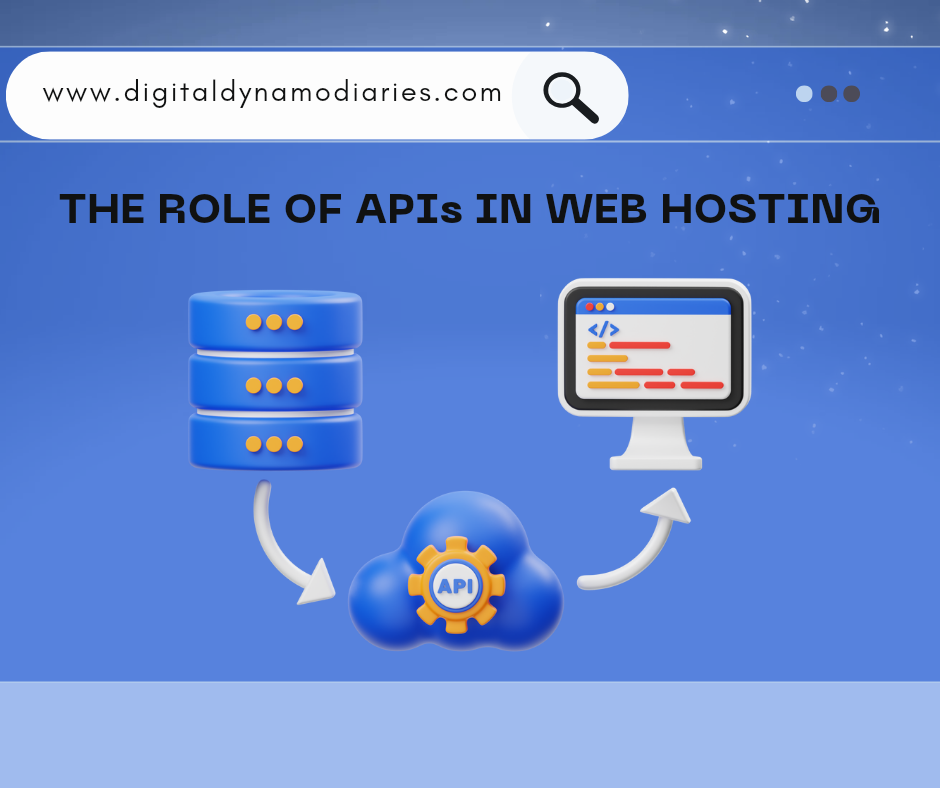The Role of APIs in Web Hosting
In the rapidly evolving world of web development, APIs (Application Programming Interfaces) have become integral to web hosting. They streamline the interaction between different software components, enabling seamless data exchange and functionality extension. For those navigating the web hosting landscape, understanding it is crucial to leverage their full potential.
What is an API (Application Programming Interface)?
An API, or Application Programming Interface, is a set of rules that allows different software applications to communicate with each other. They define the methods and data formats that applications use to request and exchange information, acting as intermediaries and enabling applications to interact without needing to understand each other’s internal workings. Essentially, they abstract the complexity of software interaction, providing standardized protocols for accessing various functionalities and data.
Types of APIs (Application Programming Interfaces)
There are several types of APIs, each serving different purposes and use cases in web hosting.
1. Web APIs: They use HTTP requests to access web-based services. They are the most common type of APIs used in web hosting, allowing web applications to interact with servers, databases, and other services over the internet. These facilitate communication between client-side applications and server-side resources, making them essential for web-based interactions.
2. REST APIs: Representational State Transfer (REST) APIs follow a set of architectural principles that make them lightweight and easy to use. They use standard HTTP methods like GET, POST, PUT, and DELETE, making them ideal for web services. They excel in simplicity and scalability, making them highly popular in web development.
3. SOAP APIs: Simple Object Access Protocol (SOAP) APIs use XML messaging protocol and offer robustness and security features. Enterprises often use them for critical applications. They provide enhanced security and transactional reliability, which makes them suitable for enterprise-level applications.
4. GraphQL APIs: Developed by Facebook, GraphQL allows clients to request exactly the data they need, reducing the amount of data transferred over the network and improving performance. GraphQL provides a more efficient and flexible approach to querying data, addressing some limitations of REST by allowing clients to specify their precise data requirements.
Role of APIs (Application Programming Interfaces) in Web Hosting
APIs play a multifaceted role in web hosting, contributing to various aspects of service management and enhancement.
1. Automation and Integration: APIs automate repetitive tasks like deploying websites, managing DNS settings, and monitoring server performance. They allow different software tools and platforms to integrate seamlessly, improving efficiency and reducing manual intervention. Through automation, they streamline web hosting operations, reducing errors and saving time.
2. Enhanced Functionality: APIs enable web hosting services to offer additional features and capabilities. For example, integrating a payment gateway API allows a website to process transactions securely. Similarly, using a social media API enables a site to fetch and display social media feeds. They empower web hosts to extend their service offerings, providing value-added features that enhance the user experience.
3. Scalability: APIs support scalable solutions by enabling web applications to communicate with cloud services and third-party applications. This proves particularly important in web hosting, where scalability is critical to handle traffic spikes and growing user demands. They facilitate horizontal scaling, enabling web hosts to efficiently manage resources and ensure high availability.
4. Security: APIs provide secure access to web hosting resources through authentication and authorization mechanisms. OAuth and API keys are common methods to ensure that only authorized applications can interact with the APIs, protecting sensitive data and services. By implementing robust security measures, they help safeguard web hosting environments from unauthorized access and potential breaches.
5. User Experience: APIs enhance user experience by offering a more seamless and integrated service. For instance, they provide real-time updates, integrate third-party services, and personalize content for users. Enhanced user experiences lead to higher engagement and satisfaction, which are crucial for retaining customers in a competitive market.
Common Use Cases of APIs in Web Hosting
APIs prove invaluable in various scenarios within the web hosting ecosystem, each contributing to improved functionality and user satisfaction.
1. Content Management Systems (CMS): APIs allow CMS platforms like WordPress to interact with plugins and themes, enhancing functionality and customization options available to users. They enable CMSs to be more modular and extendable, allowing users to create highly customized and dynamic websites.
2. E-commerce Platforms: They enable e-commerce sites to integrate with payment gateways, shipping services, and inventory management systems, providing a comprehensive solution for online retailers. Seamless integration through APIs helps e-commerce platforms offer a smooth and secure shopping experience, boosting sales and customer loyalty.
3. Analytics and Monitoring: Web hosting services use APIs to integrate with analytics tools like Google Analytics and monitoring services such as New Relic. This integration helps website owners track performance metrics, user behavior, and site health in real-time. They facilitate data-driven decision-making, enabling web hosts and site owners to optimize performance and address issues proactively.
4. Customer Support: APIs facilitate the integration of customer support tools like live chat, ticketing systems, and knowledge bases, improving the support experience for website visitors. Efficient customer support integrations through APIs help web hosts deliver timely and effective assistance, enhancing customer satisfaction and retention.
Future Trends
The role of APIs in web hosting will expand further with the growth of microservices architecture and serverless computing. Emerging trends in API utilization indicate a shift towards more decentralized and efficient development paradigms.
Microservices break down applications into smaller, independent services that communicate through APIs, enhancing flexibility and scalability. This architectural style allows for the independent deployment and scaling of services, improving fault isolation and development agility.
Serverless computing, on the other hand, allows developers to build and run applications without managing servers, with APIs connecting these serverless functions. By abstracting server management, serverless computing enables developers to focus on code and business logic, improving productivity and reducing operational overhead.
Conclusion
APIs (Application Programming Interfaces) are the backbone of modern web hosting, enabling automation, integration, enhanced functionality, scalability, and security. By understanding and leveraging them, web developers and hosting providers can create more efficient, robust, and user-friendly web applications. As technology continues to advance, the importance of APIs in web hosting will only grow. Staying informed about the latest its trends and strategies will empower developers and providers to innovate and improve web hosting services, driving the next generation of web experiences.



